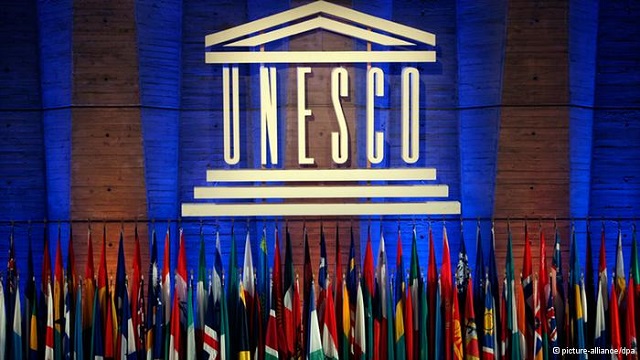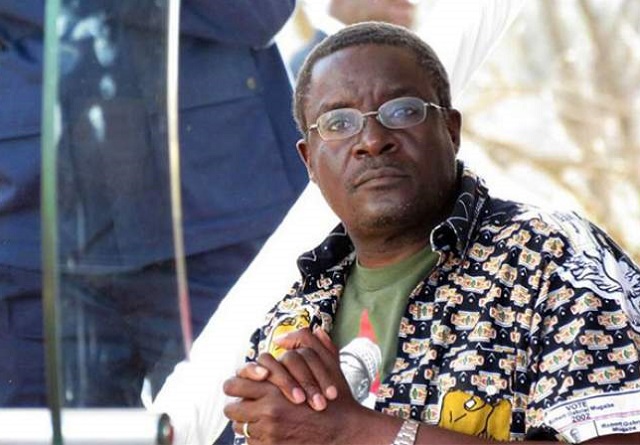UNESCO sees new hope in youth to save the planet

Emmanuel Koro
IT is increasingly becoming evident that if we are serious about saving planet earth, the young leaders and journalists worldwide, should start working together to shape a better future for humankind. To achieve this, a public mindset and lifestyle changing movement called Education for Sustainable Development is being used at different levels of leadership worldwide, including the youth. This is why Unesco organised and ran the ESD Paris “Youth Saves the Planet” Conference from May 14 to 16 in Paris, at the Unesco Headquarters.
Education is Unesco’s top priority because it is a basic human right and the foundation on which to build peace and drive sustainable development.
Currently, there is a worldwide need to promote education for sustainable development at community, national and international levels; working together with different stakeholders including young leaders and journalists.
Unesco is the UN agency that is entrusted to lead and co-ordinate the Education 2030 Agenda, which is part of a global movement to eradicate poverty through 17 Sustainable Development Goals (SDGs) by 2030. Education is goal number four within the 17 SDGs. It is an essential tool that must be used to ensure the achievement of all the SDGs because it aims to “ensure inclusive and equitable quality education and promote lifelong learning opportunities for all.”
Selected on meritorious grounds to participate at the Conference and shape a new hope for a world in which our current leaders are facing increasing challenges in their quest to achieve sustainable development, the young leaders and journalists’ enthusiasm and commitment towards achievement of sustainable development is a breath of fresh air.
The young delegates from different parts of the world pledged to create networks and start working on community and national projects that promote the wellbeing of both the people and the environment, with the view to ensuring that future generations’ need to enjoy the same wellbeing is not compromised.
For this to be achieved, the delegates appealed to Unesco to continue making resources available for skills development to run successful projects that promote both human and environmental wellbeing and to ensure that the media is used regularly as a platform to promote sustainable development.
“The Youth Saves the Planet Conference was a success that brought together youth leaders all over the world in an effort to connect and learn from each other,” said Vinh Le from Canada. “This conference has given us the tools and skills to create social initiatives and be a better ESD leader. The next steps for my partner and I at Level Studio Inc. is to create an upscale social challenge to get more youth in our country to learn about the SDGs and have them implemented into their lifestyle.”
The young journalists and leaders believe that sustainability does not simply mean conserving the present or the past with a distant goal in mind. They identified lack of broader awareness and education on the need to change mindsets and lifestyles as one of the key challenges that the media can address through increase public education on sustainable development.
“As champions of sustainable development the young leaders and journalists need to lead by example starting with ourselves and individual level then scaling it up to community, national and international levels,” said a Zimbabwean broadcast journalist, Ms Elizabeth Gandah. “Therefore, we need to start living lifestyles that show that we are promoting the achievement of sustainable development goals.”
Most countries worldwide are members of the Global Action Plan (GAP) for sustainable development. In their April 2018 draft education for sustainable development position paper that is yet to be ratified, the world governments acknowledge that when promoting sustainable development, there is urgent pay attention to individuals’ life choices and convictions as much as to the social, cultural, political, and economical contexts they are set in.
“The fundamental changes required for a sustainable future start with individuals and their change of behaviour, attitude and life style, while the institutional supports are equally important and needed to support the individual contributions,” says the GAP draft report.
Speaking at the Conference, the Director for Unesco Education for Sustainable Development, Mr Alaxandra Leicht, said that he was happy to learn that the young leaders and journalists had agreed to continue working together as a network.
“Unesco will continue to promote education and sustainable development,” said Mr Leicht. “Young people will remain a clear cornerstone of our work.”
Expose those who work against sustainable development
The Conference facilitators drawn from Africa, Middle East and Europe informed the young leaders and journalists that sustainable development could not be achieved without exposing and shaming those who work against achieving it, whether they are in public and private sector. This means that research and stories need to be written without fear or favour, calling for and end to all forms of corruption and exploitation and violation of human rights and those who work against achieving peace in the world.
For example, a delegate from Kenya who spoke on conditions of anonymity was anxious to get help to expose the human rights violations in his country involving human wildlife conflicts in which animals are being accorded more rights than humans.
“What is happening is Kenya is that when animals attack communities settled next to national parks and game reserves, the victims do not get compensated,” said the disappointed delegate. “Worse still, these communities do not get any benefits from wildlife and are gunned down by the Government if they are caught poaching wildlife or even harvesting resources from the game reserves.”
The Conference facilitators reminded the young journalists and leaders that they should not forget that they are working together with a UN agency that promotes and protects freedom of expression. Therefore, if ever they get victimised for telling the truth, they would need to appeal to Unesco for protection.
*Emmanuel Koro is a Johannesburg-based international award-winning environmental journalist who has written extensively on environment and development issues in Africa.











Comments